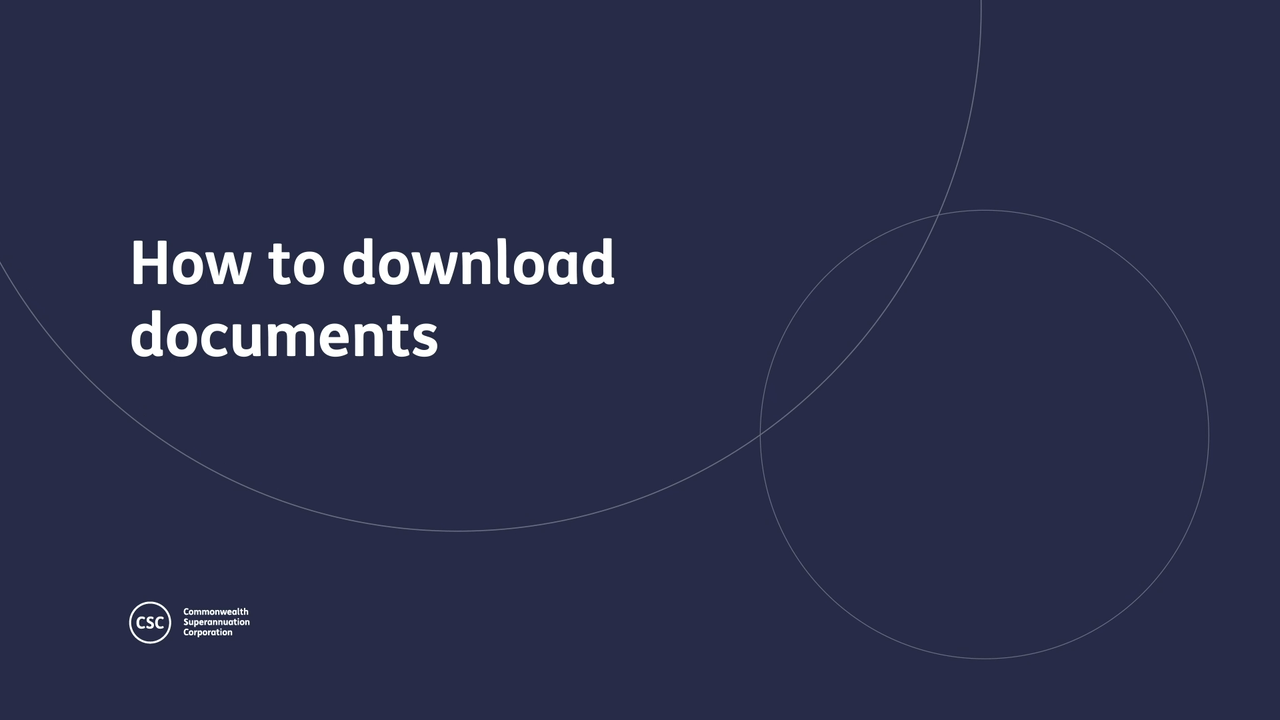
CPI rates and your pension
Learn how the Consumer Price Index increase affects your Pension
Calculations on this page are updated for July 2025. If you receive a pension, we will update you about the CPI by email or by post from 23 June 2025.
Your July 2025 CPI package once published will be available to view via our digital portal CSC Navigator. For first time users, you will need to create a new account.
1. Log into CSC Navigator or register for a new account;
2. go to Documents; then
3. download your CPI package.
Centrelink schedules, DVA schedules, and pension entitlement letters
No need to pick up the phone to receive your important documents. In CSC Navigator, you can download your Centrelink schedule, DVA schedule, and your pension entitlement letter.
Variation to Douglas tax withholding
Military pensioners eligible for Douglas tax withholding were provided with a link to the ATO’s website regarding a new variation notice for withholding. Please note, CSC have been advised by the ATO that the updated variation notice will not be uploaded until the New Year. Please contact the ATO with any questions regarding these changes.
On the first payday in January and July each year, we adjust your pension following the release of the Consumer Price Index (CPI) rates by the Australian Bureau of Statistics (ABS).
We increase your pension if there has been an upward movement in the Consumer Price Index (CPI).
-
The January increase relates to the September quarter CPI ‘all groups percentage change for the weighted average of eight capital cities’ number.
-
The July increase relates to the March quarter CPI ‘all groups percentage change for the weighted average of eight capital cities’ number.
If you haven’t been receiving your pension for the full six months before the CPI increase, we’ll apply a pro rata adjustment—you’ll only receive a proportion of the increase in your pension.
For more information visit the Australian Bureau of Statistics.
July 2025 Calculations
CSS, PSS, MilitarySuper, DFRDB aged under 55
How the CPI pension adjustment is calculated:
| (March 2025 CPI figure) – (September 2024 CPI figure) × 100 | = Pension CPI increase1 | |||
| (September 2024 CPI figure) | ||||
1Rounded to the nearest tenth of one percent
Calculation for July 2025
| (140.7 – 139.1) × 100 | = 1.15025 | = 1.2%2 | ||||
| 139.1 | ||||||
21.2% when rounded to the nearest tenth of one percent
Follow this link to the ABS website to see the consumer price index rates used in this calculation.
DFRDB aged over 55
Your DFRDB pension is calculated on whichever is the greatest of the CPI or LCI increase.
CPI increase calculation
How the CPI pension adjustment is calculated:
| (March 2025 CPI figure) – (September 2024 CPI figure) × 100 | = Pension CPI increase1 | |||
| (September 2024 CPI figure) | ||||
1Rounded to the nearest tenth of one percent
Calculation for July 2025
| (140.7 – 139.1) × 100 | = 1.15025 | = 1.2%2 | ||||
| 139.1 | ||||||
21.2% when rounded to the nearest tenth of one percent
Follow this link to the ABS website to see the consumer price index rates used in this calculation.
PBLCI increase calculation
How the PBLCI pension adjustment is calculated:
| (March 2025 LCI figure) – (September 2024 LCI figure) × 100 | = LCI increase3 | |||
| (September 2024 LCI figure) | ||||
3Rounded to the nearest tenth of one percent
Calculation for July 2025
| (141.8 – 139.6) × 100 | = 1.57593 | = 1.6%4 | ||||
| 139.6 | ||||||
41.6% when rounded to the nearest tenth of one percent
Follow this link to the ABS website to see the PBLCI rates used in this calculation.
As LCI results in a higher value, the rate of 1.6% is used in the next step.
Calculating the indicative amount:
Increase the indicative amount of $27,059.805 by 1.6%.
($27,059.80 x 1.6%) = $27,492.76 ($432.96 + $27,059.80)
5$27,059.80 is the indicative amount substituted in January 2025.
Calculating the Male Total Average Weekly Earnings (MTAWE):
The MTAWE is contained in Publication 6302.0 – Average Weekly Earnings. To get the annual rate we multiply the November 2024 MATAWE figure of $1,759.70 by the following formula.
($1,759.70 x 52) x 27.7%6 = $25,346.72
627.7% is set in the DFRDB legislation in section 98GA
Now compare the LCI indicative result of $27,492.76 of the calculation with the MTAWE result of $25,346.72. LCI of $27,492.76 is greater.
As LCI results in a higher increase, DFRDB/DFRB pensioners over the age of 55 will receive an increase of 1.6% for July 2025.
Historical CPI rates
What are the historical CPI rates?
| CSS, PSS, MilitarySuper & DFRDB under 55 | DFRDB over 55 | |
|---|---|---|
| January 2025 | 1.2% | 1.6% |
| July 2024 | 1.6% | 2.20% |
| January 2024 | 2.0% | |
| July 2023 | 3.30% | 4.0% |
| January 2023 | 3.60% | |
| July 2022 | 3.50% | |
| January 2022 | 1.50% | |
| July 2021 | 1.10% | |
| January 2021 | 0% | |
| July 2020 | 1% | 1.50% |
| January 2020 | 1.10% | |
| July 2019 | 0.50% | 1% |
| January 2019 | 0.80% | |
| July 2018 | 1.10% | 1.50% |
| January 2018 | 0.80% | |
| July 2017 | 1% | 1.30% |
How to download documents from the Navigator
In the CSC Navigator, you are now able to generate CPI & PAYG Letters, Pension Entitlement Letters and Centrelink or Department of Veteran Affairs (DVA) Schedules from a simple drop-down menu.

How to download your documents
Pension Entitlement Letters, Centrelink and Department of Veteran Affairs (DVA) Schedules
-
Log into the CSC Navigator
-
Select ‘Documents’ from the menu on the left of the home screen
-
Scroll to the bottom of the documents page to the ‘generate documents’ section
-
Select the relevant document you wish to access from the drop-down menu, then click ‘generate’
-
Once you have clicked ‘generate’, your document will appear at the top of you documents list. Please note that load times may vary, and you may need to refresh your screen.
-
Download your document by selecting the downward arrow and clicking ‘download’
-
Your document will now appear in your downloads folder.
CPI and PAYG letters
-
Log into the CSC Navigator
-
Select ‘Documents’ from the menu on the left of the home screen
-
Scroll to the bottom of the documents page to the ‘generate documents’ section
-
Select the relevant document you wish to access from the drop-down menu, then click ‘generate’
-
Once you have clicked ‘generate’, your document will appear at the top of you documents list. Please note that load times may vary, and you may need to refresh your screen.
-
Download your document by selecting the downward arrow and clicking ‘download’
-
Your document will now appear in your downloads folder.
How to find the rates for Consumer Price Index (CPI) and Living Cost Index (LCI)
Watch our videos to find the CPI and LCI rates.
Frequently Asked Questions
What is CPI?
Inflation is the increase in the level of prices of the goods and services that households buy.
The indicator of inflation is the CPI, which measures the percentage of change in the price of a basket of goods and services consumed by households.
The CPI is considered to be a suitable measure of inflation because it captures price changes for the goods and services that households buy, is independently produced by the ABS, is publicly available, and historical data for this series does not get revised.
However, the CPI is used to measure price changes, not price level.
Cost of living inflation is the change in spending by households required to maintain a given standard of living.
Will my pension go down?
No, your pension will not change if the CPI falls or stays the same.
Are there any other changes to my pension?
No, there are no changes to the amount or date we pay you each fortnight. Your pension will be paid as normal.
Is this connected to the recent tax changes?
What support services can assist with the rising cost of living?
My pension is classed as DSB. Will the tax withholding detailed in my CPI letter reflect this?
Yes, the tax withholding amount detailed in your CPI letter will account for your DSB pension.
I receive an adjusted tax withholding under the Douglas court decision, will my CPI letter reflect this?
Your CPI letter will list two sets of tax components.
The first set are your indexed fortnightly pension components. These are the indexed unadjusted components, and are not used for tax purposes.
The second set are your fortnightly lump sum tax components. These are the adjusted tax components for lump sum purposes, and include variations for Disability Superannuation Benefit (DSB), or pre-1983 tax-free component if required. Your fortnightly tax withholding is calculated using this set of components.
It’s important to note that your fortnightly pension components and fortnightly lump sum tax components will be the same, unless you are classed DSB or were a member of the Australian Defence Force prior to 1 July 1983.
Completing a tax return – Over 60
Following a change to the law, from 1 July 2017, if you are 60 years old or over (or a death benefit dependant and the deceased died at 60 years old or over) and receiving a capped defined benefit income stream, your 10% tax offset will no longer be reported on your PAYG payment summary.
When completing your tax return you will need to calculate and enter your tax offset amount manually. To assist with the calculation of your tax offset, the ATO have created a tool that can be found here Defined benefit income cap tool | Australian Taxation Office (ato.gov.au).
